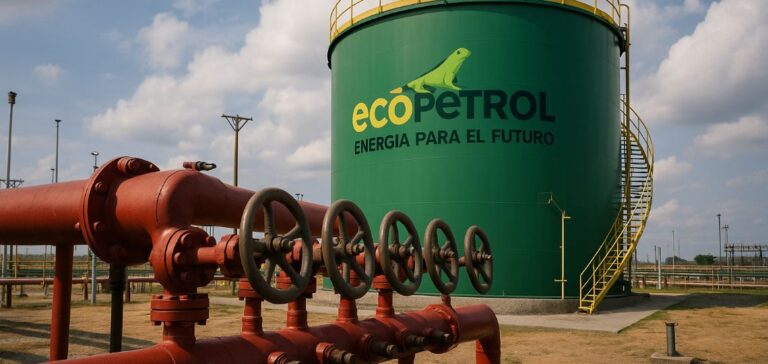The Colombian oil company Ecopetrol S.A. has secured approval from the Financial Superintendency of Colombia (Superintendencia Financiera de Colombia, SFC) to amend its Local Bond and Commercial Paper Issuance and Placement Program (Programa de Emisión y Colocación, PEC). This authorization, granted through Resolution 1139, aims to incorporate several new financial options into the existing prospectus, notably the issuance of bonds linked to sustainable performance targets. Since its initial launch in August 2013, this program has had a single issuance totalling 900 billion Colombian pesos (COP900bn, $214mn). According to Ecopetrol, the remaining additional issuance potential currently stands at COP2,100bn ($500mn).
Diversification of financial instruments
The fifth addendum to the program provides for issuing bonds explicitly associated with environmental, social, or sustainable performance, commonly referred to as green, social, sustainable, and blue bonds. The program now also includes the possibility of issuing bonds that allow repayment in kind. These bonds may be reopened after their initial issuance, providing greater flexibility in bond management.
Furthermore, Ecopetrol will be able to issue bonds indexed to the Real Value Unit (Unidad de Valor Real, UVR), a Colombian economic index reflecting inflation, and to the Representative Market Rate (Tasa Representativa del Mercado, TRM), the official Colombian exchange rate. Finally, the book-building method will be authorized to facilitate securities allocation and optimize their distribution in the financial market.
Strategic alignment
According to details provided by Ecopetrol, this evolution of the PEC aligns directly with the company’s strategy to incorporate decarbonization and energy transition criteria into its financing instruments. These changes also aim to diversify the financial instruments available in the Colombian market and address growing investor demand for companies’ extra-financial performance.
To date, Ecopetrol has not yet indicated a specific timetable for future issuances planned under this amended program. However, the oil group specified that it would duly inform the market as issuances are decided and prepared.
Significant residual potential
With a total initial ceiling of COP3,000bn ($714mn), Ecopetrol’s local bond program retains substantial available capacity. This significant residual potential offers the Colombian oil company notable leeway to mobilize additional resources in the domestic market through various financial instruments aligned with its strategic orientations.
According to Ecopetrol, these future issuances will help fund the group’s operational projects, in line with its medium- and long-term strategic goals. The market now awaits Ecopetrol’s forthcoming operational and financial decisions regarding the practical modalities of these future issuances.






















